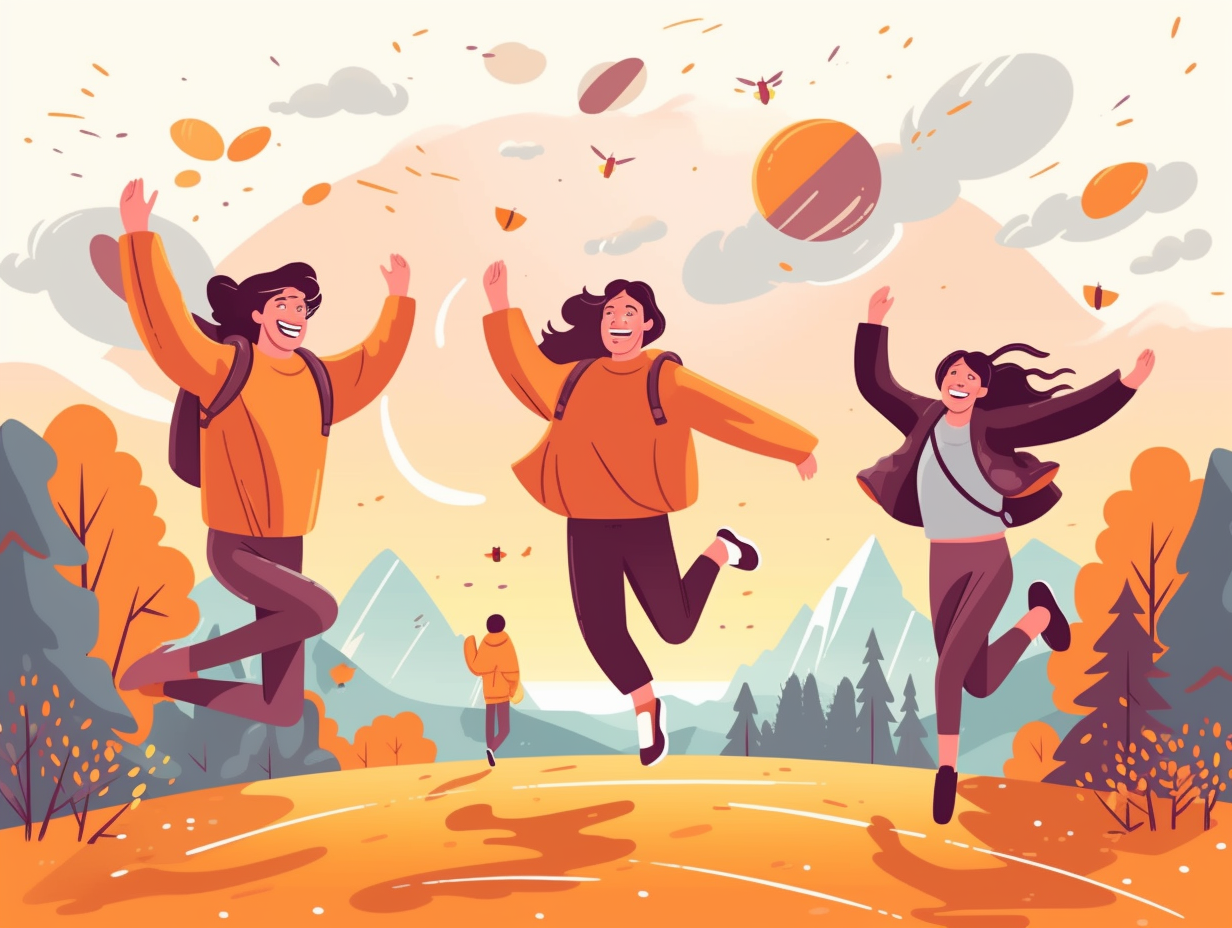Discover the Top 9 Fascinating Fun Facts About Kinesthetic Learners: Unlock Their Unique Potential!

1. The Dance of Comprehension
Step aside, Dancing with the Stars: kinesthetic learners are the true twinkle toes of the educational world! They pirouette through study sessions with their minds and bodies fully engaged, turning learning into an elaborate dance of comprehension: Kinesthetic learners thrive when they can use their bodies and movements to understand concepts, often benefiting from acting out scenes or physically connecting with material to grasp abstract ideas. Talk about learning to the beat of their own drum!
Source => gcu.edu
2. Hokey Pokey Learning
Get ready to do the hokey pokey, because these learners put their whole selves in: Kinesthetic learners excel at absorbing information when they're allowed to wiggle, waggle, and whirl their bodies in sync with their surroundings and practical tasks.
Source => indeed.com

Discover the incredible abilities of auditory learners, who master the art of retaining spoken information and excel at recalling dialogues like it's second nature! 🎧🧠✨
=> Fun Facts about Auditory-Learners
3. Skill-Collecting Pokémon Enthusiasts
Knock, knock! Who's there? Kinesthetic learners, mastering skills on their very first try like they're some kind of skill-collecting Pokémon enthusiasts: These tactile dynamos boast exceptional muscle memory, grasping complex tasks after a single attempt as they thrive on hands-on experiences rather than mere observation or auditory instructions.
Source => studypug.com
4. Tai Chi and Putty Homework Buddies
Who knew that Tai Chi aficionados and putty enthusiasts would make great homework buddies? Well, say hello to the dream team: Kinesthetic learners thrive when they get to mix hands-on experiences, like practicing the ancient art of Tai Chi or toying with squishy stress balls, with their educational journeys. The serious scoop: These tactile titans learn at their best through activities that involve movement and touch, such as hands-on experiments or role-playing exercises, with Tai Chi being one interesting example – but don't worry, they're not picky about their physical pursuits!
Source => taichiforhealthinstitute.org

5. Cha-Cha-Cha with Algebra
When life gives you limber, do the cha-cha-cha with algebra: Kinesthetic learners significantly improve information retention by engaging in physical activities and hands-on experiences while studying, creating a mind-body tango of educational harmony.
Source => en.wikipedia.org
6. Fred Astaire Therapy
Have you heard of "Fred Astaire Therapy"? That's right: it turns out that consistent tap dancing practice can actually help kinesthetic learners strengthen their movement memory! This fancy footwork allows them to sashay through complex moves without consciously thinking of each individual step, as their memory integrates feedback to not only enhance their movement sequences, but also develop their kinesthetic sense, leading to a more spectacular twirl in the dance of learning.
Source => us.humankinetics.com
7. Contemporary Dance Connection
While disco enthusiasts might envy the graceful gyrations of contemporary dancers, more might be at play than meets the eye: kinesthetic learners specifically thrive in contemporary dance styles due to its fluid movements, gravitational embrace, and seamless floor work, making the jazzier, jerky world of boogie a trickier territory for them to conquer.
Source => worlddanceheritage.org
8. Ninjas, Ballerinas, and Learners Unite!
Riddle me this: what do ninja warriors, ballerinas, and kinesthetic learners have in common? They all kick learning into high gear through motion! The serious reveal: Kinesthetic learners possess a remarkable physical memory, enabling them to swiftly and permanently learn new concepts when paired with body movements, such as using SnapWords® to effortlessly remember sight words.
Source => child1st.com
9. Boogieing Through Classrooms
It's time to ditch those sleepytime lectures and put on your dancing shoes: Kinesthetic learners thrive in classrooms where physical activities like role-playing, vocabulary review games such as Fly Swat and Hangman, and tunes with coordinated motions hold the stage instead of monotonous monologues.
Source => teflcourse.net
Related Fun Facts




















